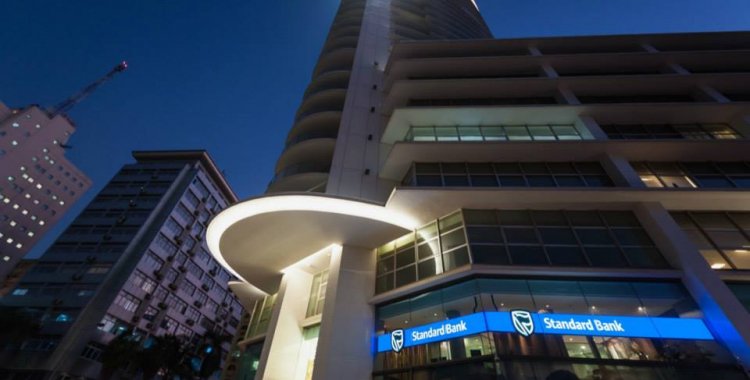"Standard Bank will always maintain an important presence in the country, with an ambition for growth. If you ask me whether this growth can be achieved through acquisitions or not, I still cannot answer you. (...) We're looking forward to understand what will come out of this process," Luís Telles said in an interview with Lusa in Lisbon, before some data on the valuation of the assets of 13 of the country's biggest banks was released - a list in which the bank he leads was not included.
The manager explained that "Standard Bank Angola is part of the largest bank in Africa and has been growing organically" in that country, where it has been for nine years and aims to continue increasing its presence.
However, the manager recalled that "being a bank that has a preference for organic growth, Standard Bank [group] has made several acquisitions in other countries in Africa. The group is in 20 countries in Africa and has made several acquisitions in the countries where it is".
In Angola, "we are very attentive to what is happening," he said.
"We have been following very closely, both with the regulator and with colleagues from other financial institutions, with auditors, finally with the whole community interested in this process, with the IMF as well, to understand what could happen," he said.
In order to be a successful bank, we need a credible and stable banking system", said Luís Teles.
The Angolan central bank concluded, after an asset quality assessment exercise that focused on 13 banks operating, that the banking system is "globally robust", but pointed to recapitalisation needs of the Banco de Poupança e Crédito (BPC) and Banco Económico (BE).
The president of Banco de Poupança e Crédito said last week that a recapitalisation plan was being prepared to meet the requirements of the Banco Nacional de Angola (BNA).
The government's measure is part of the International Monetary Fund's intervention programme in that country and is an assessment to be made of the quality of the assets of the 13 main banks that represent more than 90 percent of the country's credit portfolio and the aim is to ensure that the banks are sufficiently capitalised to meet the risks they have in their balance sheets.
The head of Standard Bank argued that "in the event that current shareholders do not have available capital, this will force some consolidation in the market or encourage banks to seek other partners outside Angola to invest in the capital of their financial institutions.
The valuation of banks' assets is for the manager "a very important measure for the credibility of the Angolan financial system" and reinforces the confidence of depositors.
But "it may also allow the entry of new 'players' (investors) or the creation of new institutions resulting from mergers between current banks, or possibly the resolution of some banks," he added.
When asked directly what Standard Bank's action was, Luís Telles confined himself to saying: "I think it's still a little early to take certain decisions regarding possible mergers and acquisitions or consolidation processes".
It is "necessary first to have access to information" and to understand whether the institutions affected "may have reserves that allow them to make a capital increase or have available shareholder capital. Depending on the results, it will be clear what kind of movements are needed", he said.
The bank, with 19 branches in Angola, should now contribute to innovation in the national market, with other solutions that allow for greater financial inclusion, a theme that Luis Telles defends to be "very important for Angola", a country where the percentage of the "banking population" is "very small".
The manager recalled that the National Bank of Angola has already initiated a legislative process that will allow the introduction of mobile payments in the market, one of the solutions that ensures greater financial inclusion, and that almost all the countries around Angola already have.
Luis Telles admits that Standard Bank "may also participate in this process".
Listed on the Angolan Stock Exchange, Standard Bank had, in 2018, 32 billion kwanzas in net income, which at the time exchange rate was around 100 million dollars.
"With the devaluation of the kwanza today it represents less," the manager said.
About the 2019 results, Luis Telles said that these "are in line with expectations, a very difficult year from the point of view of business growth.
But "we think that we will be able to present positive results, with a growth in relation to the previous year", he said.







